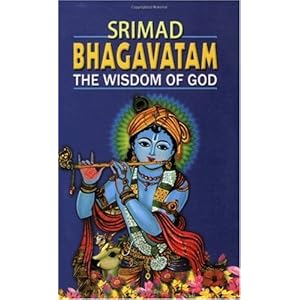Nuggets from Ram Dass's 2010 bhakti yoga book
Here are some bits I found helpful:

"There are three levels from the thinking mind to the heart-mind. The thinking mind is manas. The intuitive intellect and the faculty of discrimination is buddhi. Individual awareness, the pure sense of I-ness, is ahamkara, which is the heart-mind and the witness. All of these levels of mind emanate from the individual soul, or jivatman, which is our connection to the all-pervading, universal soul, the atman.
"It may be helpful to see these planes as a series of veils or illusions (maya) that keep us separate from the atman, or universal soul. In another sense they are a schematic of the conscious universe. The universal consciousness of the atman is localized in the jivatman, our individual soul. Our most basic experience of selfhood is the individual awareness, the ahamkara. The higher mind, or buddhi, is the discriminating wisdom that mediates between pure awareness and the world of form. The everyday continuum of disparate thoughts and feelings that keeps us identified with sensory expereince is the manas, the thinking mind."

"We cannot cling to forms or our experiences of them, because they decay and dissolve back into their formless state. Attempting to hold on to anything in time is ultimately futile and a cause of much suffering. What is really there to hold on to? In reality there is nothing permanent, nothing sold, nothing constant except relativity and change themselves"
[NOTE: I - CK - would argue that there is one constant: the atman / purusha / Supreme Self / Brahman].
"When we realize how finite are the limits of gratification or possible fulfillment within the play of forms, then despair rises. That despair is born of the world-weary understanding that nothing in form can provide ultimate meaning. It also forces and demands awakening and seeks transcendence of suffering."
"You're giving up stuff that is so connected to the root of your worldly identity that it's like a death. You go through some of the same things people go through when they are physically dying -- denial, anger, resentment -- 'Why is this happening to me?' or 'Can I bargain may way out of it?' First come depression and despair, then surrendering to the situation, and finally the lightness of a new state of being."

"Someone asked Maharaj-ji, 'How do I know if someone is my guru?' Maharaj-ji said, 'Do you think s/he can fulfill you in every way spiritually? Do you feel s/he can free you from all desires and attachments? Do you feel s/he can lead you to final liberation?'"
"The difference between a guru and us is that s/he inhabits those [higher] planes always, with no discontinuity. S/he lives in the atman, the One. We experience our consciousness as separate, but through the guru's love we begin to experience it as shared in common, because love dissolves boundaries, love is universal. Maharaj-ji brings us as far back as we can go into that state of merging into love before our individuality kicks in and we hold back out of fear of letting go. That's the crux of the whole matter."

"Once one is established in infinite consciousness, one becomes silent and, though knowing everything, goes about as if s/he does not know anything. Though s/he might be doing a lot of things in several places, to all outward appearance s/he will remain as if s/he does nothing. He will awlays remain as if s/he is a witness to everything that goes on, like a spectator at a cinema show, and is not affected by the pleasant or the unpleasant. To be able to forget everything and to be aloof, that alone is the highest state to be in."
-Bhagwan Nityananda

"The Atman or divine Self, is separate from the body. This Atman is One without a second, pure, self-luminous, without attributes, free, all-pervading. He is the eternal witness. Blessed is he who knows the Atman, for though an embodied being, he shall be free from the changes and qualities pertaining to the body. He alone is ever united in me."
-Srimad Bhagavatam 74
---------------------------------------------------------------------------------------
[NOTE: I changed "he" to "s/he" when they refer to gurus - some of the greatest of whom have been (and are) female incarnations].

"We cannot cling to forms or our experiences of them, because they decay and dissolve back into their formless state. "
ReplyDeleteI think I am going to sleep next to that one for a while.
Thanks!!
Good Post!!
ReplyDeleteJust to be clear -- this last picture is Chandra Om -- correct?
Ralph from DeKalb
QE- You're welcome.
ReplyDeleteRHH- I think you already know the answer.